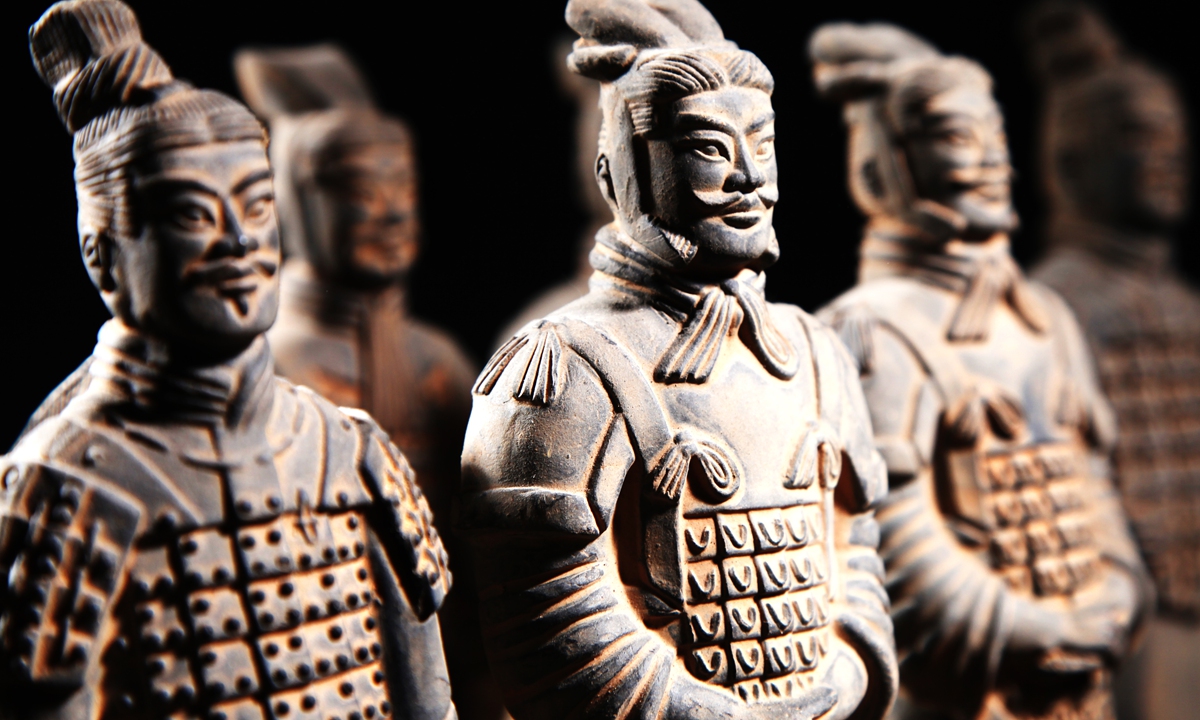Terracotta warrior museum’s anti-epidemic measures key to identifying China’s latest COVID-19 outbreak

A Terracotta Warrior Terracotta Warriors A statue of a Tang maid The Great Mosque The ancient city gate tower of Xi'an Photos: VCG The Muslim street Biangbiang noodles Roujiamo Xi'an Olympic Sports Center
The most famous tourist attraction for the ancient city of Xi'an, Northwest China's Shaanxi Province - the museum of the terracotta warriors which required tourists to provide nucleic acid test results taken within 48 hours - has turned out to be vital in identifying the first COVID-19 infections in China's latest round of nationwide epidemic flare-up, which has by far affected nine provinces that mounted to 20 positive cases.
The first two COVID-19 positive cases, a retired Shanghai couple in their 60s, were reported on Sunday. Epidemiological reports showed that the couple, along with other five seniors from the same tour group, took a road trip in Northwest China's Gansu Province and North China's Inner Mongolia Autonomous Region from October 9 to 15, before they left for Shaanxi.
As one of their planned destinations, the terracotta warriors scenic spot required COVID-19 test results taken within 48 hours upon entry. The couple voluntarily took a mixed nucleic acid test on the morning of October 15 at the Jiayuguan Traditional Chinese Medicine Hospital, the husband surnamed Jiang told People's Daily in an interview.
"Since we can check our test report on the phone, we went back to the hotel for checkout, and flew to Xi'an," Jiang said.
After touring the city and visiting many popular tourist attractions on Saturday, their reports came on Saturday evening, suggesting they had COVID-19.
The other five people who traveled together with the couple, all in their 60s and 70s, all tested positive for coronavirus later.
A total of nine provinces have reported related cases linked to the tour group as of press time, involving more than 20 positive cases in Beijing, Hubei, Qinghai, Gansu, Ningxia, Inner Mongolia, Guizhou, Hunan, and Hebei.
The terracotta warrior museum suspended operation on July 30 this year when a sudden epidemic resurgence caused by the Delta variant swept across the country in July. It resumed operation on September 17, and has since required all tourists from outside the province to provide negative COVID-19 test reports taken within 48 hours, Jiankang Shibao reported on Thursday.
If it was not for the seemingly troublesome requirements, COVID-19 spread could have become much worse, the report said.
Global Times

